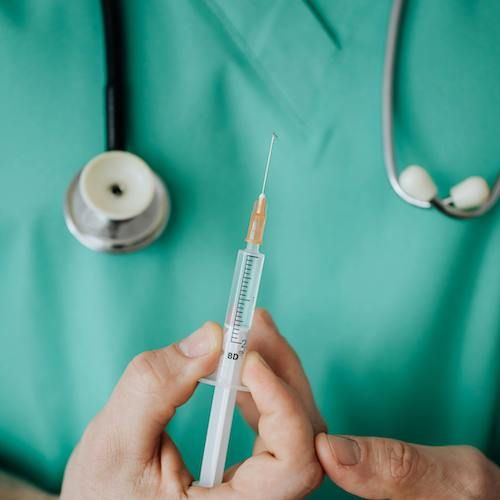News
Video
Evaluating the Medtronic 780G System in Type 2 Diabetes
Author(s):
In a recent Diabetes Dialogue segment, hosts discussed the efficacy and safety of advanced hybrid closed-loop therapy with the MiniMed 780G system.
Advanced hybrid closed-loop (AHCL) therapy use provided safe insulin intensification and demonstrated key improvements in mean hemoglobin A1c (HbA1c) and time-in-range in people with type 2 diabetes (T2D).
The 13-site, single-arm, open-label study assessed the safety and effectiveness of the MiniMed™ 780G system among 95 adults with insulin-requiring T2D, with a 21-day run-in period of open-loop or HCL followed by a 90-day study period of AHCL.
In a recent episode of Diabetes Dialogue: Technology, Therapeutics, & Real-World Perspectives, hosts Diana Isaacs, PharmD, an endocrine clinical pharmacist, director of Education and Training in Diabetes Technology, and codirector of Endocrine Disorders in Pregnancy at the Cleveland Clinic, and Natalie Bellini, DNP, program director of Diabetes Technology at University Hospitals Diabetes and Metabolic Care Center, explored the potential of the MiniMed 780G system for T2D and how they could improve outcomes for this population.
“I think it just adds to all this evidence of these systems working very well in people with T2D and so, the question is why we aren't using these systems more in this population,” Isaacs said.
Across the 90-day study period, the MiniMed™ 780G system decreased mean HbA1c from 7.9% to 7.2% (P <.001), while the percentage of time-in-range (70–180 mg/dL) reached 80.9% (95% CI, 78.4–83.1) during that time. The total daily insulin needs increased from 77.4 U to 91.8 U over that period, with stability in carbohydrate intake and a decrease in the number of user-initiated boluses.
Safety results revealed no significant changes in participant weight or body mass index (BMI) during the study alongside no reports of severe hypoglycemia, diabetic ketoacidosis, hyperosmolar hyperglycemic state, or serious adverse events.
“These systems are so strong that they can help these people with T2D,” Bellini said. “I'm thrilled that this is another option. One question becomes, where does that FDA indication come from, do we think this will push Medtronic to get a T2D indication?”
Relevant disclosures for Isaacs include Eli Lilly and Company, Novo Nordisk, Sanofi, Abbott Diabetes Care, Dexcom, Medtronic, and others. Relevant disclosures for Bellini include Abbott Diabetes Care, MannKind, Provention Bio, and others.
References
Diana Isaacs P, Natalie Bellini D. Diabetes dialogue: Omnipod 5 and Medtronic 780G for Type 2 diabetes. HCP Live. February 15, 2025. Accessed February 25, 2025. https://www.hcplive.com/view/diabetes-dialogue-omnipod-5-and-medtronic-780g-for-type-2-diabetes.
Bhargava A, Bergenstal RM, Warren ML, et al. Safety and Effectiveness of MiniMed™ 780G Advanced Hybrid Closed-Loop Insulin Intensification in Adults with Insulin-Requiring Type 2 Diabetes. Diabetes Technol Ther. Published online February 6, 2025. doi:10.1089/dia.2024.0586





